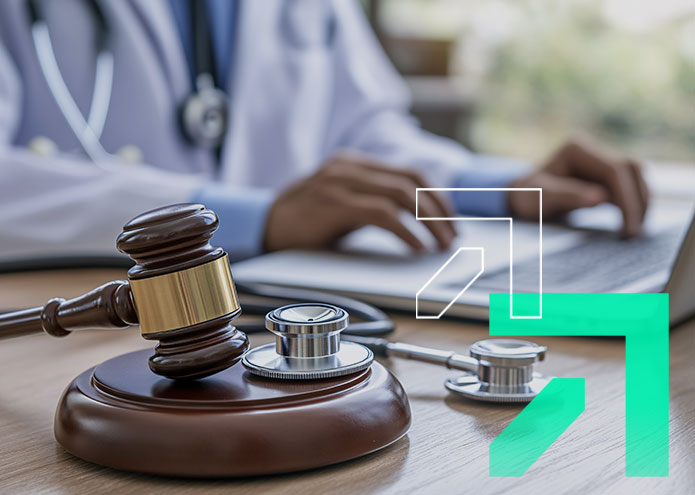Enabling Digital Access to Medicaid Data: Benefits to Agencies and Members

Accessing and managing member data continues to be a major challenge for state Medicaid agencies. Medicaid membership grew over 25% during the COVID-19 public health emergency (PHE), totaling more than 93 million enrollees in Medicaid and the Children’s Health Insurance Program as of March 2023.
Redetermining eligibility for the members added during that time period is a massive nationwide effort. With more than 15 million Americans poised to lose their Medicaid coverage during the unwinding, it is critical to find a more efficient and effective way to notify them they may no longer be eligible.
The CMS Interoperability and Patient Access final rule focuses on several related issues. It was designed to drive transparency and access to members’ health data. This calls for innovative solutions that streamline agency processes while reducing costs and empower members by enabling them to play a larger role in their own healthcare .
Unlocking the Power of Mobile Platforms to Engage Members
Digital transformation in the healthcare industry has been accelerating rapidly, particularly since the pandemic increased our reliance on technology to communicate and access care-related information.
Meeting people where they are makes digital access a powerful solution today. It’s even more valuable for the Medicaid member population, whose location or circumstance may make them more difficult to reach and whose health and social care needs may be disproportionately complex.
Mobile technology is an essential tool to help members manage their own healthcare. Pew Research survey data shows 97% of Americans own a cell phone, and 85% have a smartphone. Among some of American’s most vulnerable communities, smartphone reliance has increased significantly over the last decade and is the primary means of internet access for many, particularly those who do not have a home broadband connection, according to the Pew survey.
Mobile platforms play a key role in bridging the digital divide, offering numerous benefits to a population that historically has been overlooked in the realm of person-centered innovation. These benefits include:
- Convenience. People typically have their mobile phone with them at all times, anywhere and everywhere. They can review and respond to communications when it works best for them.
- Security. Health data can be transmitted and contained securely, with a focus on protecting an individual’s private medical information.
- Patient empowerment. Patients have immediate access to information wherever and whenever they want or need it.
- Proactive engagement and intervention. Medicaid programs can send members important messages such as reminders about preventive care, upcoming appointments and other health-related information.
Mobile access is playing an increasingly pivotal role for acquiring and managing one’s personal health data.
Driving Efficiency, Sustainability and Cost Savings
Enabling digital access to Medicaid data also provides benefits for states, such as operational efficiencies through streamlined administrative processes and digitally sharing data between members and the state. This capability complies with CMS’ final rule by allowing data to flow freely and securely between payers, providers and patients.
Another benefit is significant cost savings. Having members’ ID cards on their smartphone or other mobile device eliminates the need for state agencies to process, print and mail plastic cards and replacement cards — typically between $2 and $4 per card. That savings is adding up for the state of Nevada, currently reducing their costs from between $60,000 and $100,000 annually by not printing plastic cards.
Other Medicaid documents and information also can be sent digitally, again saving substantial printing and mailing costs. Digital solutions provide a greener, more sustainable alternative.
Transforming the Medicaid Member Experience, Lightening the Burden
Digital access truly can help states realize CMS’ vision of patient-centered care: That patients can access their data at no additional cost via the tools they choose.
At a time when millions of Americans are predicted to lose coverage, re-enroll or change health plans, it’s more important than ever that patients, providers and payers have the same access to secure, free-flowing information. Embracing digital solutions will enable that access and put agencies on a path toward patient-centered care, better health outcomes and streamlined processes as they manage these vital programs.
Recent Insights
Let’s shape the future of healthcare together.
Start the conversation today.





